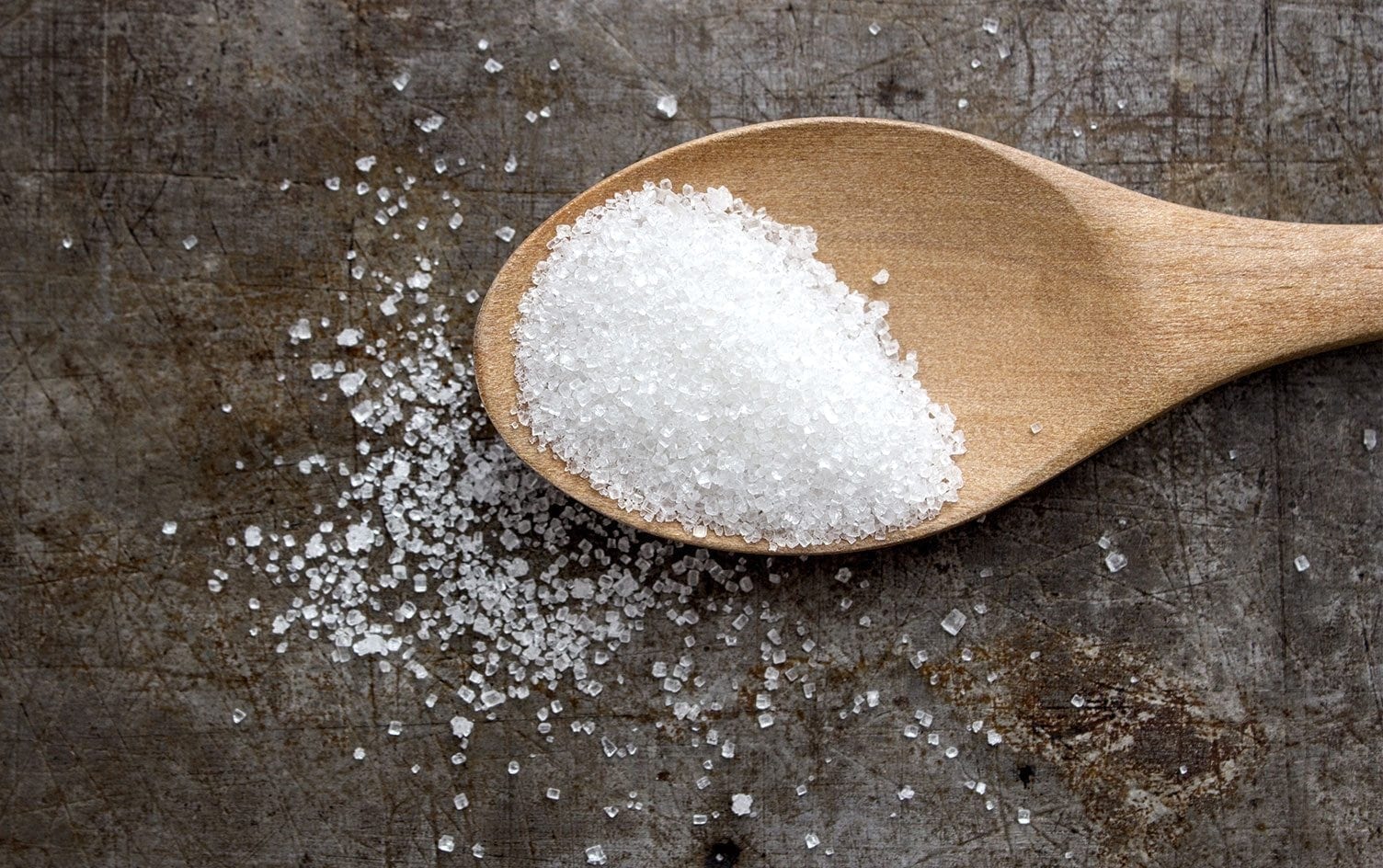By now most of us know too much sugar isn’t good for us and that overdoing it on the sweet stuff is linked to obesity, Type 2 diabetes, metabolic disease, fatty liver and other chronic health conditions. For whatever reason though, most of us still find it hard to resist sweet treats, beverages and snacks.
I’m willing to bet many of us have experienced intense sugar cravings or have binged on sweets before — experiences that leave us feeling powerless in the presence of certain foods and questioning whether we have a sugar dependency. But is sugar addiction even real? This is one of the most common questions I hear as a dietitian — the answer to which boils down to whether sugar is an addictive substance or not.
IS SUGAR ADDICTIVE?
Despite many similarities in addiction characteristics — like bingeing, tolerance and withdrawal — the Diagnostic and Statistical Manual of Mental Disorders, the manual by which mental-health professionals classify mental disorders in the United States, does not currently contain a clinical diagnosis specifically for sugar or food addiction. This is largely because there is little clinical research in humans to substantiate the idea that food or sugar addictions are real.
But just because we lack a diagnosis for sugar addiction doesn’t mean that sugar isn’t addictive.
Eric Stice, PhD, a neuroscientist who has extensively studied sugar’s effects on the brain, says consuming highly palatable foods — like those containing high amounts of sugar — activates the same key reward regions of the brain that are triggered when a person does drugs like cocaine. Biologically this makes sense since, back in our hunting and gathering days, sugar was a rare and valuable source of energy. Back then, a strong reward response to sugar was beneficial since it sent us seeking more. This also explains how the human body has adapted to almost effortlessly convert sugar into fat.
READ MORE > SHOULD I EAT BACK MY EXERCISE CALORIES?
In addition to brain-imaging studies in humans, there is strong animal research to support the legitimacy of sugar addiction. “In regards to animal data, I can be a little more assured about a true addiction with intermittent sugar intake, which has been proven in animal models,” says Dr. James DiNicolantonio, a doctor of pharmacy. “Not because sugar activates similar neurochemical pathways but because rats fed intermittent sugar intake go through druglike withdrawals when sugar is removed from their diets. Not only that, giving rats who are consuming an intermittent sugar intake regime naloxone, an opiate antagonist, also produces withdrawals — the same withdrawals experienced if hooked on morphine or cocaine.”
When asked whether he thought sugar addiction was real, Dr. Robert Lustig, a childhood obesity expert and leading obesity researcher, said it certainly is in animals.“According to the DSM-5 criteria, sugar is addictive,” he says. “We have the data mechanistically in animals, we have the correlative data in humans and we certainly see this empirically in our patients.”
In practice, doctors and dietitians often look for addiction characteristics in a patient’s eating habits to determine whether food or sugar addiction may be present. Of those, bingeing and withdrawal are the easiest to identify, but Stice has found that people who consume high amounts of sugar can indeed develop tolerance, which further supports the notion that sugar is addictive.

WHAT ABOUT SUGAR WITHDRAWAL?
Ask anyone who’s slashed added sugar from their diet cold turkey, and they’ll likely tell you sugar withdrawal is real. As is common with caffeine, nicotine and other addictive substances, people withdrawing from sugar typically feel pretty lousy during the process. The most common symptoms include irritability, fatigue, headaches, insomnia, cravings, malaise and feeling “foggy.” Of course, symptoms vary greatly and will depend upon regular sugar intake, individual physiology and whether you’re going cold turkey or using a tapering approach. If you happen to be the unfortunate person who experiences all of these symptoms simultaneously, know that it is temporary. Based on Lustig’s observations, sugar withdrawal usually lasts 4–5 days — after which patients generally report major improvements in both mood and energy levels.
5 TIPS TO BEAT SUGAR ADDICTION
1. COMMIT TO CUT BACK, AND PICK THE APPROACH THAT’LL WORK FOR YOU
Leslie Lee, MS, RD, recommends abstinence and moderation as approaches to limiting sugar. Both approaches can work, but one might be better suited to your personality, eating habits and lifestyle. Quitting cold turkey requires more preparation up-front, Lee says, since you’ll have to “be prepared to manage the withdrawal symptoms, and pragmatically, one has to be prepared to eat in an entirely different manner.”
“If you’re just someone who thinks they might be overdoing it on sugar, then perhaps a gradual reduction is doable and can be accomplished with relative ease,” she adds.
Regardless of your approach, Lustig and the American Heart Association recommend a maximum of 100 calories (25 grams) of added sugar per day for women and 150 calories (37.5 grams) for men.
2. KEEP YOU EYE ON THE NUTRITION FACTS LABEL AND INGREDIENT LISTS
Being aware of hidden sources of added sugar is half the battle here. Soon Nutrition Facts labels will have to show the amount of sugar added to the packaged foods you buy, not just the total amount. That’s good news for those who may not know all of the nicknames for added sugar and have a hard time spotting it in the ingredient list.
3. EAT HIGH-QUALITY CARBOHYDRATES IN PLACE OF ADDED SUGAR
Yes, you read that right! Love ’em or hate ’em, carbohydrates are not created equal. A diet low in added sugar doesn’t have to be low-carbohydrate, which is good news for those of us in the carb-lovers camp. A recent study led by Lustig showed that simply removing fructose (from added sugar) from the diet for just 10 days reduced liver fat, an indicator of metabolic disease, by nearly 30%. Wholesome carbohydrates to consider include sweet potatoes, brown rice, oatmeal and whole-grain bread made without added sugar.
4. REPLACE SUGARY TREATS WITH NONFOOD REWARDS
If your idea of a reward is frozen yogurt topped with cookie crumbles and chocolate sauce, consider nonfood rewards instead. Treat yourself to a special group workout class, a manicure, a movie, even a lazy morning in bed. If you want a sweet treat, go for something nutritious and low-glycemic that won’t trigger a binge. Berries, kiwi and oranges (whole, not juiced) are great options.
5. FIND BETTER WAYS TO MANAGE STRESS
For many of us, eating palatable foods, like those high in sugar, is how we cope with stress. That’s because stress primes brain for addictive eating patterns and can create cravings for sugar, says Elissa Epel, PhD, an expert on the impact of stress on food intake and obesity. Some of her research at the University of California, San Francisco, also shows that sugar dampens the stress response — which can be a pretty powerful reinforcement to keep eating the sweet stuff when times get tense.
Instead of turning to sugar for solace, explore other ways to manage stress, like yoga, meditation, running or journaling.
Want more tips? Here are 15 simple hacks for eating less sugar.





